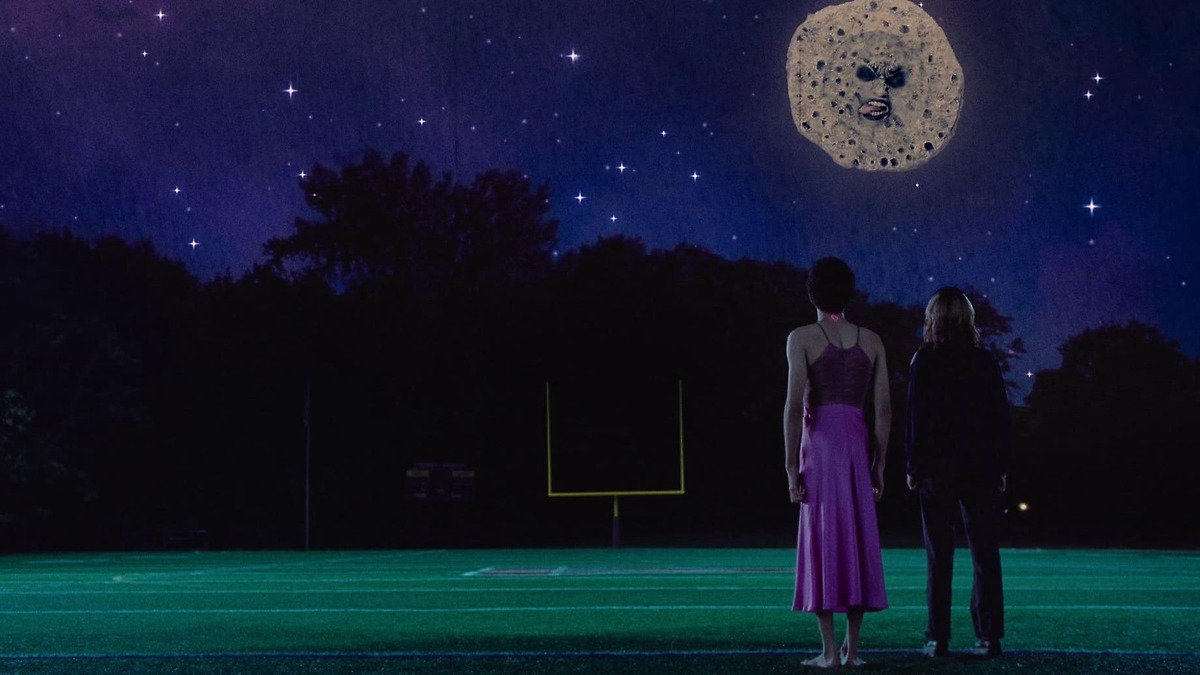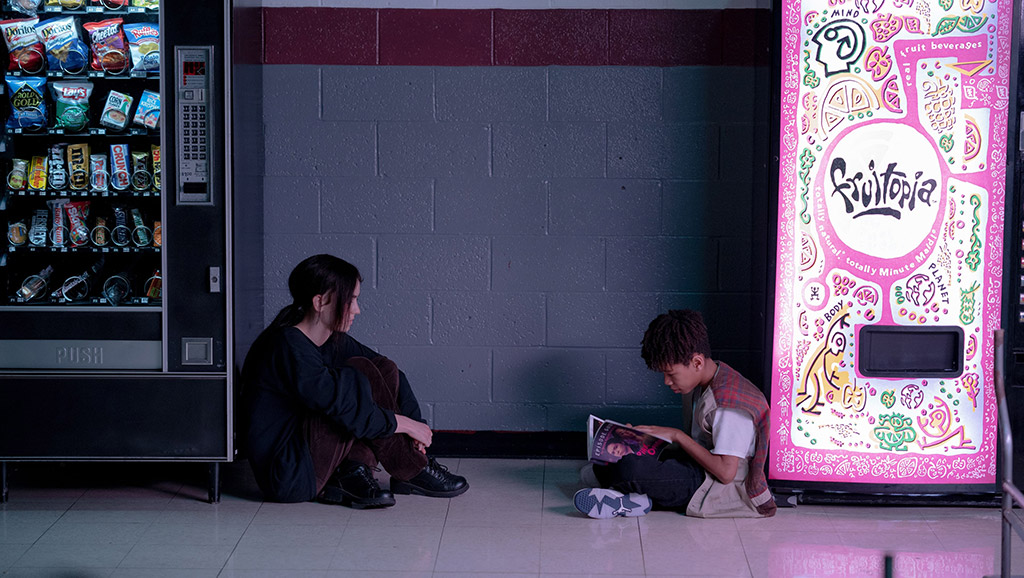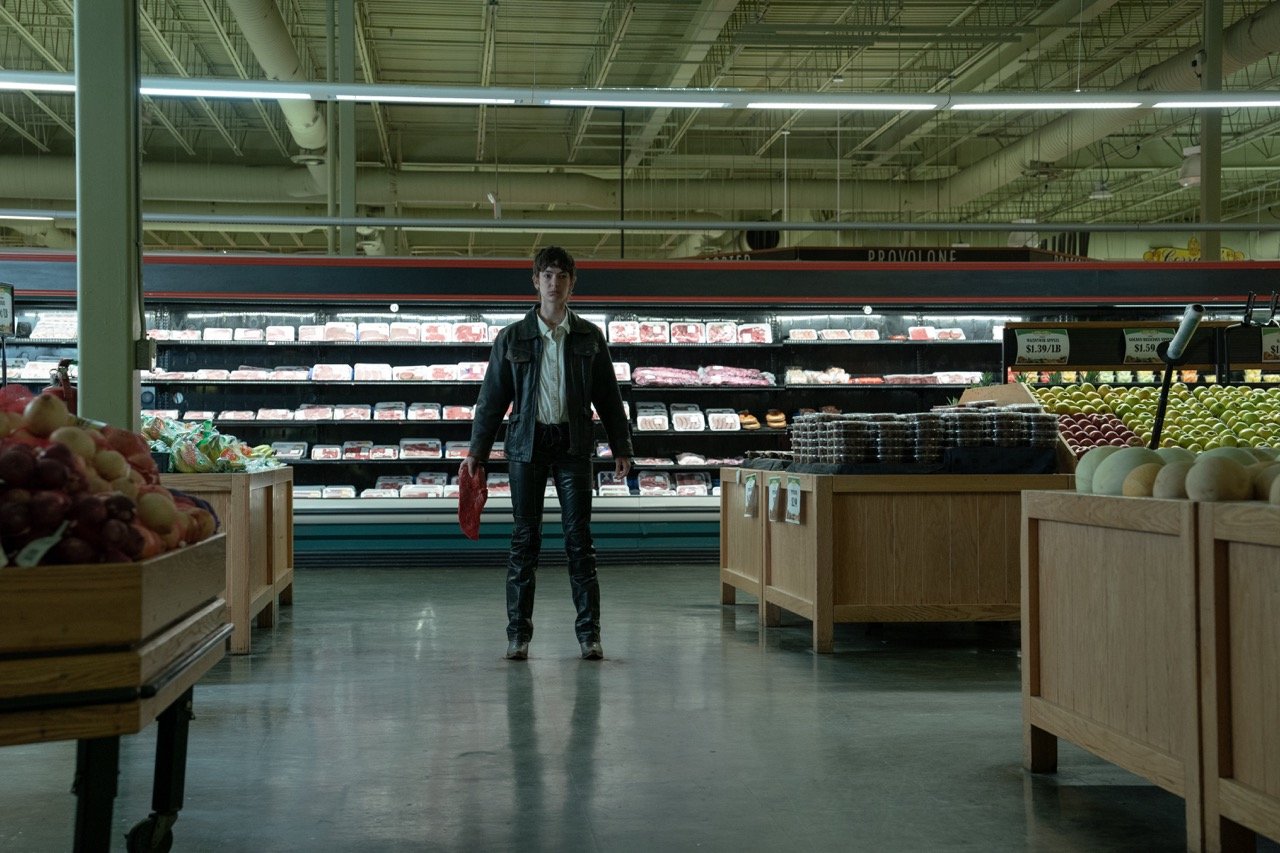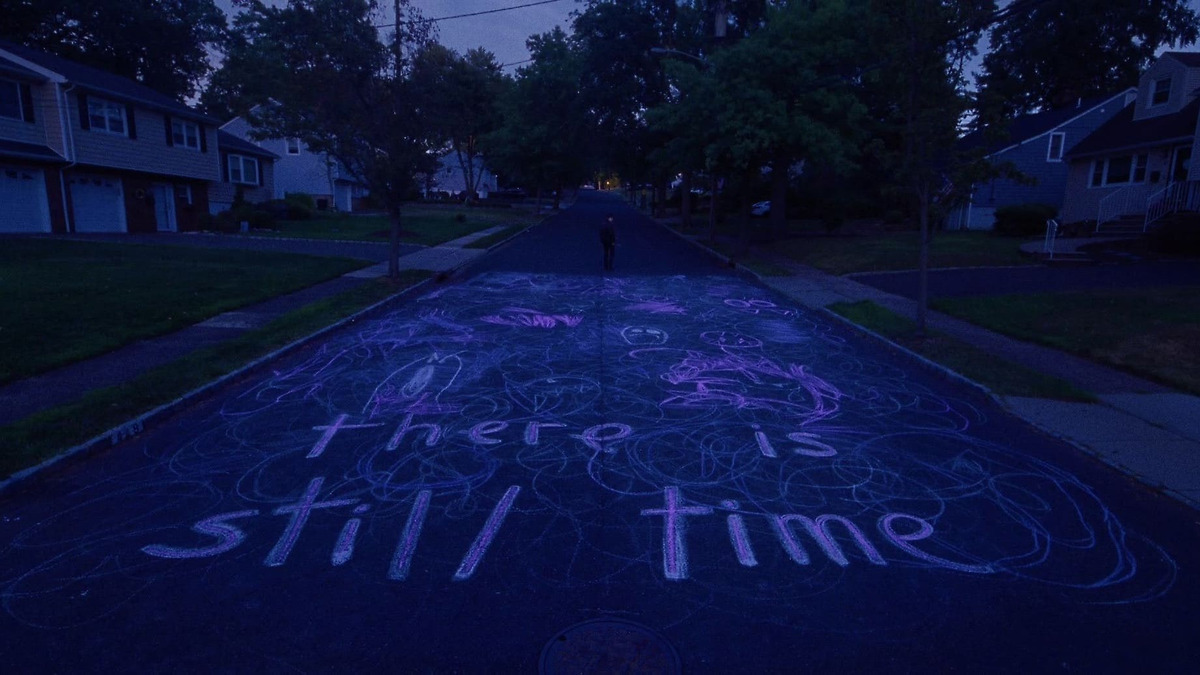
I Saw The TV Glow
[SPOILERS] I’m nearly 24 hours after watching and this is where I’m at. Don’t read this if you intend to watch it and haven’t yet.
Closet Horror
I think the overarching theme of the movie is “Closet Horror”, meaning it’s intended to dramatize and stylize the horror of remaining in the closet. As someone who’s out and working through a lot of past trauma about it, it’s well-tread terror. I felt physically uneasy for most of the film, which is likely by design.
It’s not just about transness. The themes are applicable to anyone hiding from who they are inside because they’re afraid. I’ve felt that way about things that have little or nothing to do with gender.
Vibes

Much of the beginning of the movie is vibes. I dig those vibes, especially the music, but it was hard to join in the nostalgia because much of the representation of TV, VHS tapes, and the environment was discordant in time.
There’s no way a poor kid with an abusive single stepfather and no job just has dozens of blank VHS tapes she can just give away to a friend. Those things weren’t expensive, but they weren’t nothing either. This is a stupid detail of my own memories swapping between one or two tapes and continuously recording and re-recording over them because they were so precious. A minor detail I felt my nostalgia snag on whenever it appeared.
And perhaps triggering that memory at all was a success of the movie’s intent. Perhaps it was about pronouncing the distorting effects of nostalgia’s rose-tinted glasses.
Escapism Into Media
The Matrix meant many things to me — I even wrote fanfiction about it –, but I don’t look back at it without recognizing what’s there. I didn’t lose myself in that fiction, even if I wished I could.
There’s a common escapism in my generation more than previous ones. The film shows how real our projections onto media can feel. How the stuff we consume early in development and adolescence becomes part of our vocabulary. It can sometimes go too far.
This is part of why fandoms are such trash fires online. It’s why even the most small-time niche influencers talk about the parasocial relationships their fans feel they have and how it leads to stalking and harassment. It’s why when we watch things from our youth again today, we often see something wholly new and yet not-forgotten. Our memories lie to us to protect us sometimes, and it’s hard to even realize it until we arrive at safety or… break down.
Dissociation
It’s hard to tell what’s real. Did Maddy exist at all? Did she exist at the start but never return 10 years later? Did Owen ever actually watch The Pink Opaque? Or was he constantly focused on Maddy and the show was just a way to feel close to her? The entire movie feels dissociative so it’s never clear to me. But that’s also how life felt for big chunks of my own.

The time jumps are demonstrated so well. The most precious thing we have as individuals is time. Being closeted and denying ourselves feels like dying because it leeches our time away. The fact that Owen looks practically elderly in the final scenes is how I often felt in my thirties before finally waking up and coming out. Accelerated entropy wrecked havoc on my body and mind as I let myself wither after getting married and resigned to cramming myself into a hole that wasn’t my shape.
I made it all the way to Phoenix with the money I’d saved.
The trees were different, but everything else was exactly the same.
I got out of that town, the place I knew would kill me if I’d stayed, but something was still wrong. Wronger even.
Time wasn’t right. It was moving too fast.
And then I was 19.
And then I was 20.And then I was 21.
Maddy, I Saw the TV Glow
Like chapters skipped over on a DVD.
I’m free now, and yet I still lost a big part of those first 38 years.
Cautionary Tale
The second half is about opportunity cost, the slippery slope, and the snowball effect of denial. The in-your-face metaphor of hearing the muffled screams of yourself screaming out to you, but pretending you can’t hear it until it dies. Eventually, you start hoping it would die so you can live in peaceful denial, but it refuses. It won’t die until I do, or until I dig her up.
This is the horror of the closet, and it’s visceral.
I’m alarmed, disgusted, and uncomfortably “perceived” by the throughlines to my own life.
- The fact that Maddy ran away to Phoenix of all places, and felt it was much the same mirrors my own experience of moving all over the country and my other-ness following wherever I went.
- The shitty job at the “fun center” mimicking my service industry jobs and my feelings about attending a party I never wanted to join (CW: a depressing-as-hell post).
- Feeling time slipping away in huge chunks.
- The other boys bullying him in ways so specific to my experiences…
- Even the specificity of the methods of self harm…
Why is what I went through not unique? 😭
Seeing Others Living the Horror
The scene where Maddy pleads with Owen to come with her and escape the midnight realm is so gut-wrenching. It’s the experience seeing other queer and neurodivergent people who I relate to suffer the same ways I did in present time.
I found my heart.
Isabel, oh my god!
I found yours too.
And it was still beating!
Stored indefinitely in an industrial freezer!I knew I needed to come back here. I knew I needed to come back and save you.
Maddy, I Saw the TV Glow
Her failure to get through to him is that helpless feeling we have to live with whenever we read the headlines from around the world whenever trans people are mentioned lately. This is half of the tragedy that the final scene leaves us with.
Only One Moment to Breathe
There was only one moment of comfort in the entire film, and that’s the minute or so around the middle of the story when Maddy draws the ghost on the back of Owen’s neck.
And the moment is abruptly cut away from by Owen scraping the skin off his neck with a coarse washcloth to remove it before anyone else sees.
This momentary gasp for air left me wondering if it would be my last before the ending. Hope was always there, and I don’t know if that made the feeling better or worse.
Review
The movie is very good as a piece of art, but it was painful and triggering to watch. Even with all the layers of stylization, it hit me far too personally.
I hesitate to recommend it. It’s hard for me to know how cis/het/neurotypical people would receive it. I’m somewhat curious about that take, but I also don’t know how it would affect me to hear it. I definitely don’t want to seek it out online from strangers, but friends are welcome to share.
(at the time of this post, I Saw the TV Glow is streaming on Max)
